Group Landmark’s ROAR: Driving CSR Through Agroforests
Group Landmark, India’s premier automobile dealership group known for representing luxury and premium brands like Mercedes-Benz, Jeep, Volkswagen, Ren Read more
Project Update 3
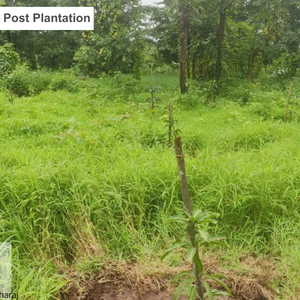
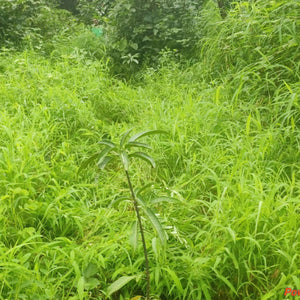
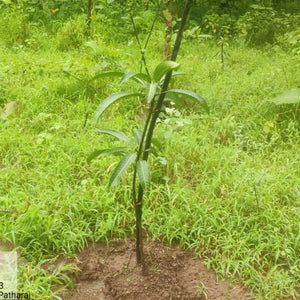
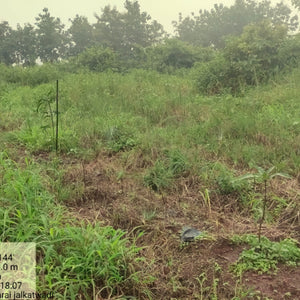
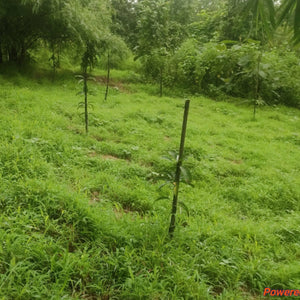
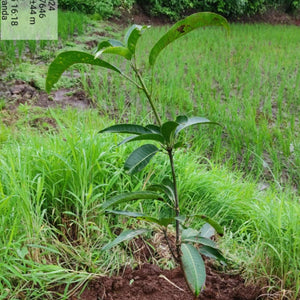
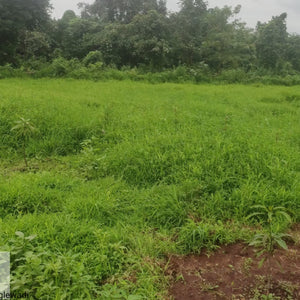
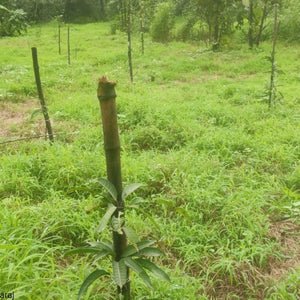
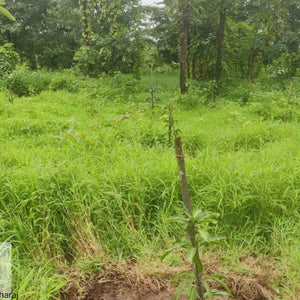
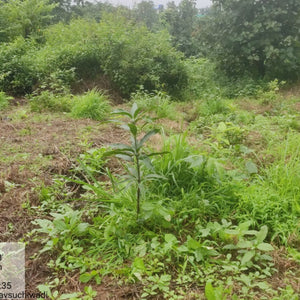
Project Update 2
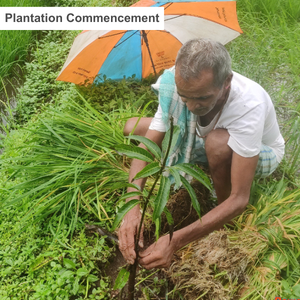
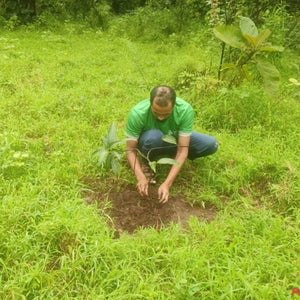
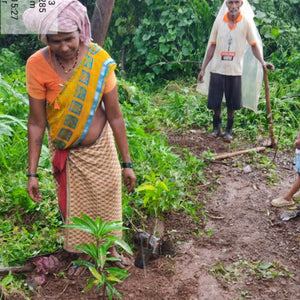
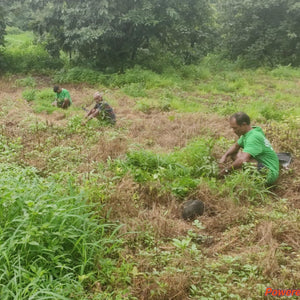
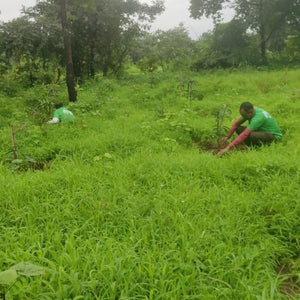
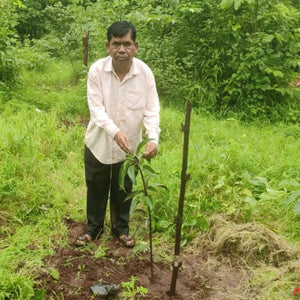
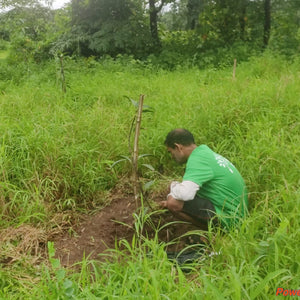
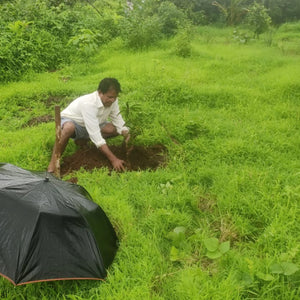
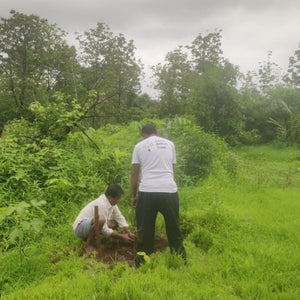
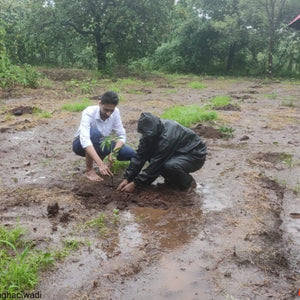
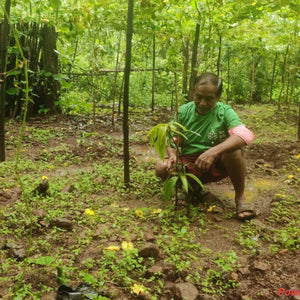
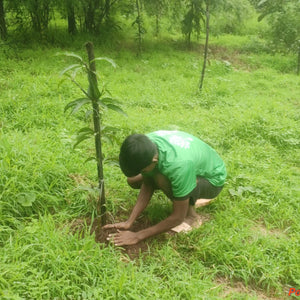
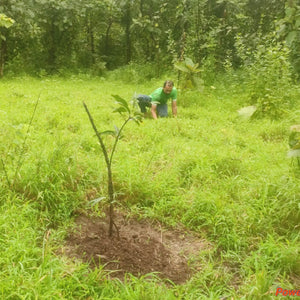

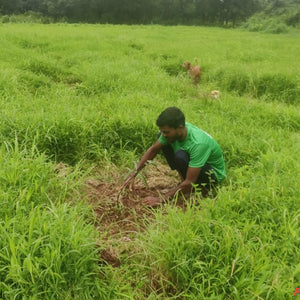
Project Update 1
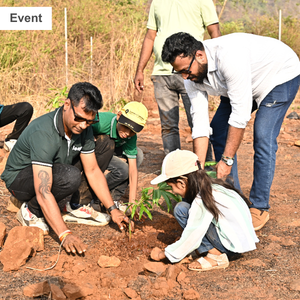

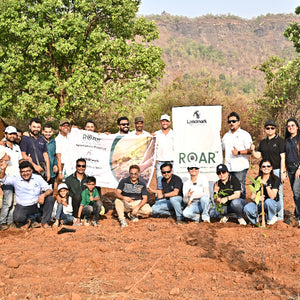
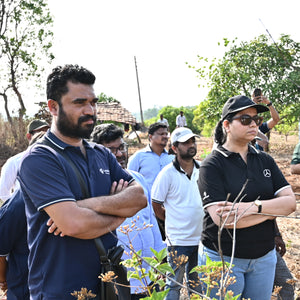
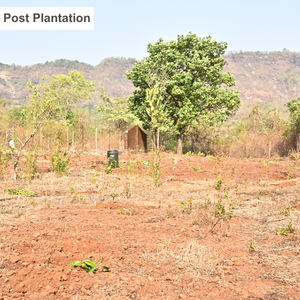
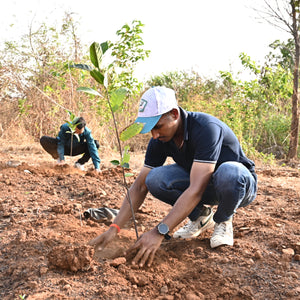
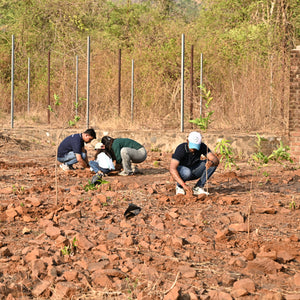
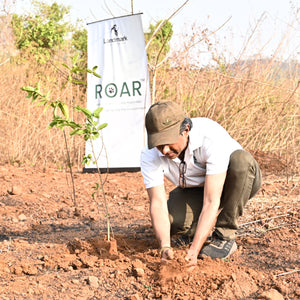
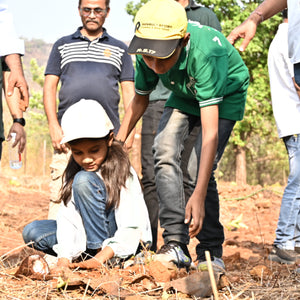





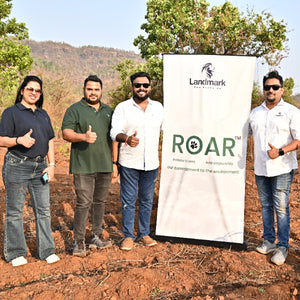

Digital Forest
Forest with 19,538 Trees planned
Want to plant your tree now?
Plant a Tree @ 299Group Landmark’s ROAR: Driving CSR Through Agroforests
Group Landmark, India’s premier automobile dealership group known for representing luxury and premium brands like Mercedes-Benz, Jeep, Volkswagen, Renault, Honda, and BYD, has taken a powerful stride towards sustainability through its ROAR (Reduce to Zero, Add Responsibly) initiative.
As part of its Corporate Social Responsibility (CSR) under ROAR, Group Landmark launched an impactful tree plantation drive rooted in the agroforest concept. This initiative goes beyond conventional greening efforts; it prioritizes the empowerment and livelihood of farming communities by integrating trees into agricultural landscapes, offering sustainable income opportunities, and improving local resilience. At the same time, it fosters ecological restoration, enhances biodiversity, and contributes to healthier soil and air.
In partnership with Grow Billion Trees, Group Landmark planted trees not only as a symbolic gesture but as a long-term commitment to the planet. The group has pledged to diligently nurture this green ecosystem over the next three years, ensuring its growth into a robust, self-sustaining forest that actively combats climate change and supports rural prosperity.
Through ROAR, Group Landmark is redefining responsibility, turning environmental intent into tangible action, and ensuring that every car sold contributes to a greener, more equitable tomorrow.
Project Planning & Execution
No of Trees: 19538 Trees
Plantation Location: Village Dongarpada, Taluka Karjat, District Raigad, MH 410201
Plantation Duration: 19th April 2025 to 30th July 2025
Name of Species: Guava, Mango, Lemon, Custard Apple, Fig, Jackfruit, Bamboo, Teak
Species Selection & Its Benefits
| SN | Plant Name | Ecological Benefits | Social Benefits |
| 1 | Mango | Enhances biodiversity, provides shade, and improves soil quality with organic matter. | Offers a high market value, creating an income source for farmers. |
| 2 | Guava | Supports pollinators and helps in carbon sequestration. | Provides nutritious fruit for local consumption and sale. |
| 3 | Anjeer (Fig) | Encourages wildlife by providing food for birds and small animals, improves soil fertility. | Generates economic opportunities through fruit production and medicinal uses. |
| 4 | Lemon | Acts as a natural pest repellent and contributes to air purification. | Supports local communities with vitamin-rich produce and potential value-added products. |
| 5 | Custard Apple | Custard apple trees enhance air quality by absorbing carbon dioxide and releasing oxygen. |
Custard apple cultivation provides livelihood opportunities for rural farmers, especially in arid and semi-arid regions. |
| 6 | Jack Fruit | Jackfruit trees enhance soil stability with their deep roots and prevent erosion. |
Jackfruit provides a nutritious and affordable food source, supporting food security in rural communities. |
| 7 | Bamboo | Bamboo improves air quality, prevents soil erosion, supports biodiversity, and absorbs high carbon, making it a powerful ecological ally. | Bamboo provides livelihoods, promotes sustainable housing, and supports rural communities with affordable, eco-friendly resources. |
| 8 | Teak | Teak enhances carbon sequestration, enriches soil health, and supports long-term forest sustainability through its durable green cover. | Teak provides valuable livelihoods, supports rural economies through timber trade, and contributes to community development with its long-term economic returns. |
Beneficiaries Details
Planting Methodology and Its Advantages
Agroforestry: As part of its Corporate Social Responsibility (CSR) initiatives under the ROAR (Reduce to Zero, Add Responsibly) banner, Group Landmark embraces agroforestry as a strategic approach to environmental sustainability and rural development. This initiative integrates fruit-bearing and timber trees with crops on the same land, creating a resilient system that benefits both farmers and the environment.
By combining agriculture and forestry, the initiative enhances soil fertility, conserves water, and boosts biodiversity, while offering multiple income streams through fruits, timber, and other by-products. This holistic model reduces climate risks, improves farm productivity, and supports long-term economic stability for farming communities, making it a powerful tool for sustainable land management.
Advantages of Agroforestry
-
Increased Farmer Incomes: This approach helps increase farmers' income by as much as 3 times. Farmers benefit from diversified income sources, lifting economic resilience.
-
Sustainable Livelihoods: Farmers benefit from diversified income sources through the sale of fruits and other tree-based products, reducing dependence on a single crop.
-
Enhanced Biodiversity: Agroforestry creates a diverse ecosystem by integrating trees with crops, attracting pollinators, birds, and beneficial insects that support natural pest control.
-
Environmental Sustainability: This model reduces carbon emissions and promotes sustainable land management, aligning with SDG 13 (Climate Action) and SDG 15 (Life on Land).
-
Food Security & Nutritional Benefits: Fruit-bearing trees provide a direct source of food, improving local nutrition while supporting long-term agricultural productivity.
-
Carbon Sequestration & Climate Resilience: Trees absorb carbon dioxide, helping mitigate climate change while providing shade and windbreaks that reduce temperature extremes and improve microclimatic conditions.
- Soil Health and Water Conservation: Tree roots prevent soil erosion, enhance water retention, and improve soil fertility by fixing nitrogen and adding organic matter. Agroforestry systems also support groundwater recharge, reduce runoff, and improve soil moisture retention, making them ideal for drought-prone regions.
Activities During Tree Plantation
Group Landmark proudly unveiled its ROAR (Reduce to Zero, Add Responsibly) initiative as part of its CSR commitment to environmental sustainability. Under this banner, the company launched a meaningful tree plantation drive using the Miyawaki method, a step that intertwines ecological restoration with active community involvement.
The initiative was more than a symbolic gesture; it was a well-planned effort, with site preparation, careful selection of native species, and a strong focus on employee participation. Group Landmark employees came together with great enthusiasm, joined by Ms. Nidhi Singh, Co-Founder and CEO of Grow Billion Trees, to bring this green vision to life.
This Miyawaki forest represents a long-term investment in biodiversity and urban greening. But beyond that, it reflects a shared belief: that by planting trees, we also plant hope. Through ROAR, Group Landmark is not only reducing its footprint but actively adding value responsibly to create a sustainable tomorrow.
Conclusion Elements
Impact
Direct Impact
| Parameters | Values | References |
| No. of Trees Planted | 19,538 | |
| Fruit Production Potential (Tons/Year) | 321.6 | |
| Timber Production Potential (Tons/Year) | 82,218 | |
| Income Generation Potential (Rs/Year) | ₹18,017,600 | |
| Carbon Sequestration Potential (KG) | 20 |
Small to medium-sized trees can sequester around 10–48 kilograms (22–106 pounds) of CO₂ annually. https://growbilliontrees.com/blogs/knowledge/how-much-co2-can-one-tree-absorb |
| Carbon Sequestration by 19,538 mature trees ( Tons/year) | 391 Tons | No. of Trees x Carbon Sequestration by 1 mature trees per year |
| Carbon Credit Equivalent | 391 | One carbon credit is equivalent to one tonne of carbon dioxide or the equivalent amount of another greenhouse gas. |
| Carbon Footprint of an avg Indian Citizen (Tons/Year) | 1.8 | https://www.iea.org/countries/india/emissions |
| Offsets Annual Carbon Footprint of (Adults) | 217 | Carbon offset by 19538 mature trees per year / Carbon Footprint of an avg Indian Citizen per year |
(This impact analysis is forward-looking (An Agroforestry project matures in 3-5 years)
Reference for Annual Production and Income Estimates of 19,538 Trees Planted
| SN | Plant Name | Fruit Selling Price (per KG in INR) | Annual Production per tree (in Kgs) | No. of Trees Planted | Total Yield (in Tons) | Total Income |
| 1 | Mango | ₹40 | 25 | 5,575 | 139.375 | ₹5,575,000 |
| 2 | Guava | ₹35 | 20 | 3,577 | 71.54 | ₹2,503,900 |
| 3 | Anjeer (Fig) | ₹70 | 20 | 90 | 1.8 | ₹126,000 |
| 4 | Lemon | ₹30 | 30 | 1,222 | 36.66 | ₹1,099,800 |
| 5 | Custard Apple | ₹50 | 25 | 720 | 18 | ₹900,000 |
| 6 | Jack Fruit | ₹50 | 70 | 774 | 54.18 | ₹2,709,000 |
| Total | 321.6 | ₹12,913,700 | ||||
| Timber Selling Price/kg | Annual Production per tree (in Kgs)* | No. of Trees Planted | Total Yield (in Tons) | Total Income in 1 yr | ||
| 7 | Teak | ₹120 | 425 | 2,160 | 918 | ₹4,860,000 |
| Timber selling price/clump | Annual Production per tree (in Clumps) | No. of Trees Planted | Total Yield | Total Income in 1 yr | ||
| 8 | Bamboo | ₹60 | 15 | 5,420 | 81300 | ₹243,900 |
| Total | 82,218 | ₹5,103,900 | ||||
| Total | 19,538 | 82539.6 | ₹18,017,600 |
Indirect Impact
Community Impact
-
Empowerment of Farmers - By providing training and resources for sustainable farming practices, agroforestry equips farmers with skills to enhance productivity and adapt to environmental changes.
-
Food Security – By integrating fruit-bearing trees into agricultural systems, the initiative ensures a stable food supply, providing nutritious produce for both consumption and market sale.
-
Environmental Awareness – The project educates the local community on the importance of tree planting, biodiversity conservation, and sustainable land use.
-
Enhanced Social Equity – Agroforestry initiatives foster enhanced social equity by empowering marginalized farmers with sustainable livelihoods, bridging economic gaps, and promoting inclusive community participation in environmental conservation efforts.
-
Resilience to Climate Change – Agroforestry improves soil health, enhances water retention, and reduces land degradation, making farming communities more adaptable to changing climate conditions.
-
Health and Well-being – Increased green cover improves air quality, reduces heat stress, and provides access to nutrient-rich fruits, contributing to the overall health of local communities.
Environmental Impact
-
Carbon Sequestration: Trees act as carbon sinks, absorbing significant amounts of CO2 from the atmosphere, helping to mitigate climate change and reduce greenhouse gas emissions.
-
Soil Health Improvement: Agroforestry enriches soil through organic matter from fallen leaves and roots, improving fertility, structure, and nutrient availability for crops.
-
Erosion Prevention: Tree roots stabilize the soil, reducing erosion caused by wind and water while protecting nearby agricultural fields and water bodies.
-
Biodiversity Conservation: By creating habitats for various species, agroforestry enhances biodiversity, supporting pollinators, beneficial insects, and native wildlife.
-
Water Cycle Regulation: Trees improve water retention, recharge groundwater levels, and reduce surface runoff, contributing to a more balanced and sustainable water cycle.
-
Microclimate Regulation: Agroforestry moderates temperature extremes, reduces wind speeds, and increases humidity, creating favorable conditions for crop growth and ecosystem balance.
Achievements
SDG Goals Achieved through Agroforestry
-
SDG 1: No Poverty – By integrating agroforestry with traditional farming, Group Landmark's initiative provides farmers with additional income sources through fruit yields, improving economic resilience, and reducing poverty in rural areas.
-
SDG 2: Zero Hunger – The plantation of fruit-bearing trees enhances food security by offering nutritional produce while improving soil health for sustainable agricultural productivity.
-
SDG 3: Good Health and Well-Being – Tree plantations improve air quality, soil fertility, and water conservation, creating a healthier environment for local communities. The presence of green spaces also promotes mental well-being.
-
SDG 4: Quality Education – Group Landmark's agroforestry initiative includes farmer training on sustainable land-use practices. These educational efforts equip farmers with knowledge on conservation, resource management, and climate-resilient agriculture.
-
SDG 6: Clean Water and Sanitation – By reducing soil erosion, improving groundwater recharge, and minimising surface runoff, the plantation promotes sustainable water management in the region.
-
SDG 8: Decent Work and Economic Growth – The initiative generates employment opportunities for rural communities, provides training in sustainable agroforestry, and supports long-term economic growth through enhanced land productivity.
-
SDG 9: Industry, Innovation, and Infrastructure – Group Landmark's project integrates innovative agroforestry techniques, including multi-layer cropping systems and soil conservation methods, fostering sustainable land use and industry-community collaboration.
-
SDG 10: Reduced Inequalities – By involving small-scale and marginalised farmers, the project promotes economic inclusivity and reduces inequalities by ensuring equitable access to agroforestry benefits.
-
SDG 12: Responsible Consumption and Production – Agroforestry reduces dependency on chemical inputs, promotes organic farming, and ensures the responsible use of natural resources, supporting sustainable agricultural practices.
-
SDG 13: Climate Action – The planted trees act as carbon sinks, sequestering atmospheric carbon dioxide, enhancing ecosystem resilience, and mitigating the effects of climate change in the region.
-
SDG 15: Life on Land – This initiative promotes biodiversity conservation, prevents deforestation, and restores degraded land, fostering healthy ecosystems and sustainable forestry practices.
-
SDG 17: Partnerships for the Goals – The collaboration between Group Landmark, Grow Billion Trees, and local farmers demonstrates the power of partnerships in achieving sustainability goals and fostering large-scale ecological restoration.
ESG Achieved through Agroforestry:
-
Environmental Impact: Group Landmark's agroforestry initiative plays a crucial role in environmental sustainability by enhancing carbon sequestration, restoring biodiversity, and improving soil and water conservation. The plantation of native and fruit-bearing trees supports climate change mitigation by reducing greenhouse gas emissions and increasing ecosystem resilience. Additionally, the project helps prevent soil erosion, improves groundwater retention, and contributes to a healthier, greener landscape. By integrating sustainable agroforestry practices, this initiative ensures long-term ecological benefits, fostering a self-sustaining environment that supports both nature and local communities.
-
Social Impact: The initiative brings significant social benefits by fostering sustainable livelihoods, improving food security, and enhancing community well-being. By integrating fruit-bearing trees, the project helps farmers diversify their income sources, ensuring greater economic stability and resilience for rural households. Agroforestry practices optimise land use efficiency, leading to higher agricultural productivity while maintaining ecological balance. The plantation also contributes to better air quality, creates green spaces for community well-being, and encourages local participation through awareness programmes. By engaging and educating stakeholders, the initiative empowers communities with the knowledge and skills to adopt sustainable land management practices, fostering long-term environmental and social sustainability.
-
Governance Impact: Group Landmark upholds strong governance principles by committing to ethical and responsible corporate practices in sustainability. The agroforestry initiative aligns with the company’s broader Corporate Social Responsibility (CSR) strategy, ensuring transparency, accountability, and long-term impact. By collaborating with Grow Billion Trees, farmers and local communities, Group Landmark fosters strategic partnerships that promote environmental stewardship and responsible land management. This initiative reflects the company’s dedication to integrating ESG (Environmental, Social, and Governance) principles into its corporate framework, showcasing leadership in sustainability and social responsibility.
Building Communities
Group Landmark’s agroforestry initiative goes beyond tree plantation; it strengthens rural communities by empowering farmers, fostering collaborations, and creating sustainable livelihoods. By integrating environmental stewardship with social impact, the project nurtures a sense of shared responsibility, driving long-term benefits for both people and the planet.
-
Empowering Farmers: Group Landmark’s agroforestry initiative strengthens farmers’ economic stability by diversifying income sources and improving agricultural productivity. By integrating tree plantations with existing farmland, farmers benefit from enhanced soil fertility, better crop yields, and long-term financial gains. This initiative promotes self-sufficiency and long-term environmental stewardship, ensuring a sustainable future for both farmers and the ecosystem.
-
Fostering Partnerships: Collaboration is at the core of Group Landmark’s plantation initiative, bringing together corporate, environmental, and community stakeholders. The partnership between Group Landmark, Grow Billion Trees, and local farmers created a strong foundation for sustainable development. By leveraging collective expertise and resources, this initiative ensures that environmental and social benefits extend beyond the immediate plantation, fostering long-term ecological and economic resilience.
-
Creating a Ripple Effect: The impact of this initiative goes beyond tree planting; it sets in motion a chain reaction of positive environmental and social change. By improving biodiversity, enhancing carbon sequestration, and promoting sustainable farming, the project contributes to a healthier ecosystem. Additionally, as more farmers adopt agroforestry practices, the region experiences long-term economic and environmental benefits, inspiring further community-driven conservation efforts.
This initiative proved that environmental sustainability thrives when rooted in community effort. It’s not just about planting trees; it’s about planting hope, collaboration, and a shared vision for a greener tomorrow.
Commitment by Grow Billion Trees
-
Ensuring Tree Survivability: GBT prioritizes native species, continuous monitoring, and soil health improvement using organic fertilizers. These efforts ensure sustainable growth and benefit the farmers and communities.
-
Transparency & Accountability: GBT provides detailed reports on tree growth, survival rates, and carbon benefits, using geo-fencing and regular updates to maintain transparency and effectiveness.
-
Sustainable Plantation Efforts: GBT implements projects that balance environmental, social, and economic goals, addressing urban heat islands and degraded farmlands. These efforts promote ecological balance, livelihoods, and long-term climate resilience.
-
Enhancing Ecosystem Health: By selecting native species and creating diverse habitats, GBT enhances biodiversity and ecosystem resilience, ensuring long-term ecological health and supporting wildlife.
-
Long-Term Impact: GBT’s initiatives tackle environmental challenges, enhance rural livelihoods, foster climate resilience, and promote sustainable development while reducing carbon footprints.
Acknowledgment
We extend our heartfelt gratitude for the successful completion of the plantation initiative at Village Dongarpada, Taluka Karjat, District Raigad, Maharashtra. This achievement represents a significant step towards environmental restoration, sustainable land use, and community empowerment. It would not have been possible without the collective efforts of dedicated individuals, local farmers, and partner organisations. Their unwavering commitment has played a crucial role in fostering a greener, more resilient ecosystem for future generations.
To Group Landmark: We sincerely thank Group Landmark for its unwavering dedication to sustainability and environmental conservation. By integrating agroforestry into its Corporate Social Responsibility (CSR) initiatives, Group Landmark has demonstrated a strong commitment to fostering greener landscapes and supporting local communities. We deeply appreciate Group Landmark's initiative in planting 19538 trees of native species. This effort will enhance biodiversity, improve soil health, and contribute to carbon sequestration, ensuring long-term ecological and economic benefits. Moreover, by promoting sustainable land use, this initiative plays a vital role in supporting farmers, providing them with an additional source of income through fruit production. Group Landmark's dedication to environmental sustainability and community upliftment is truly commendable, and we are grateful for its contribution to a greener and more resilient future.
To the Farmers of Karjat: Your dedication to embracing agroforestry and incorporating fruit-bearing trees into your farming practices is truly commendable. This initiative not only enriches soil health but also strengthens long-term agricultural sustainability. Your commitment to fostering a healthier ecosystem while securing a better future for future generations is inspiring. We are grateful to be part of this journey and look forward to witnessing the lasting positive impact of your efforts.
To Our Ground Partners and Volunteers: Your dedication, expertise, and passion for environmental conservation have been essential in making this initiative a success. Through our collective efforts, we have shown that collaboration and a shared vision for sustainability can create a lasting impact. Your invaluable contributions have played a crucial role in driving this mission forward, and we deeply appreciate your commitment. Thank you for being an integral part of this journey toward a greener future.
Through this collective effort, we have taken significant steps toward revitalizing ecosystems, promoting sustainable agriculture, and enhancing the livelihoods of farmers in Karjat. This is just the beginning, and we look forward to strengthening our partnership in pursuit of a greener, more sustainable future for all.
Thank you for your unwavering commitment and support.
Closing Remarks
The successful completion of the agroforestry plantation at Village Dongarpada, Taluka Karjat, District Raigarh, Maharashtra, marks a significant milestone in Group Landmark's journey towards environmental sustainability and community empowerment. This initiative has not only expanded the region’s green cover but has also provided long-term benefits to local farmers by integrating sustainable agricultural practices.
By enhancing soil fertility, supporting water conservation, and generating additional income through fruit production and other byproducts, the project strengthens livelihoods and promotes financial stability for farming communities. With 19538 trees now flourishing, this initiative will continue to contribute to ecological balance, biodiversity restoration, and climate resilience.
As we celebrate this achievement, we reaffirm our commitment to driving impactful sustainability efforts and inspiring more organisations and individuals to take action for the environment. We extend our deepest gratitude to Group Landmark, the farmers of Karjat, our partners, and all those who contributed to making this project a success. Your dedication and collaboration have been instrumental in turning this vision into reality.
This is just the beginning of a larger movement towards a greener and more sustainable future. Through collective efforts, we can build a resilient environment and leave a lasting legacy for generations to come.
Trees for Corporates
Trending
Most Popular
1. Group Landmark Tree Plantation Drive
When luxury cars and leafy greens join forces, you get Group Landmark’s tree plantation drive—a CSR initiative that shifts gears from roads to roots! Known for driving premium vehicles into your garage, Group Landmark is now steering sustainability onto India’s farmlands. Through its ROAR (Reduce to Zero, Add Responsibly) campaign, the brand is planting fruit-bearing and timber trees with the same finesse it delivers Mercedes-Benz keys. This isn’t just about going green—it’s about going smart. The agroforestry model blends crops and trees like a perfect hybrid, enhancing soil health, boosting biodiversity, and giving farmers a much-needed economic turbocharge. Partnering with Grow Billion Trees, the initiative ensures that farmers grow wealth along with wellness. Each sapling isn’t just a tree—it’s an investment in rural livelihoods, carbon capture, and cool shade. Who knew a dealership could also deal in hope, growth, and photosynthesis? Group Landmark’s tree plantation drive proves sustainability is more than a buzzword—it’s a lifestyle with horsepower.
2. ROAR Initiative by Group Landmark
ROAR might sound like a jungle call—but at Group Landmark, it’s the battle cry of a greener tomorrow. ROAR (Reduce to Zero, Add Responsibly) is not just a CSR slogan—it’s a bold, wheel-turning initiative that merges premium engineering with eco-conscious action. While their showrooms are known for shiny exteriors, Group Landmark’s CSR is all about getting its hands dirty—in soil! Through ROAR, they’re planting agroforests packed with fruit-bearing and timber trees, restoring land while empowering local farmers. This isn’t just about offsetting carbon; it’s about redefining luxury as sustainable. Think of it as planting prosperity—one sapling at a time. It’s not just good for the Earth; it’s great for communities and fabulous for SEO (yes, Google loves trees too!). ROAR is proof that when a company truly cares, it doesn’t whisper—it roars! And in this case, it’s the sound of engines meeting ecosystems.
3. Agroforestry CSR Projects in India
where crops, trees, and people thrive together. These CSR projects are seeding a sustainable legacy—and unlike your New Year’s resolutions, this one’s here to stay!
4. Sustainable Farming through Tree Plantation
Move over monocultures—sustainable farming through tree plantation is here to shake up the soil (literally). Group Landmark’s ROAR initiative isn’t just about luxury vehicles; it’s about luxury farming, where fruit and timber trees meet traditional crops in perfect symbiosis. Think apples with your onions or mahogany with your millet. It’s like matchmaking for Mother Nature! This agroforest approach not only nourishes the earth but also diversifies farmers’ incomes and reduces their risks. Pests? Controlled. Climate impact? Minimized. Soil? Healthier than your keto diet. By blending sustainability with strategy, Group Landmark isn’t just improving agriculture—it’s making it fabulous. Farming never looked this cool, or this clever.
5. Fruit-Bearing Trees for Farmer Livelihood
Who says money doesn’t grow on trees? For Group Landmark’s agroforestry initiative, fruit-bearing trees like guava, mango, and jackfruit are serious business. These trees provide more than shade—they’re a delicious source of recurring income for farmers. While Group Landmark deals in horsepower and high-performance engines, its tree plantation drive now delivers natural ROI—Returns on Incense (fruity fragrance, anyone?). Each fruit-laden tree is a ticket to sustainable income, healthier diets, and stronger rural economies. It’s the juiciest CSR move in the industry. Bonus? You reduce your carbon footprint while sweetening the lives of countless farmers. Now that’s what we call a fruitful investment!
6. Timber Trees for Long-Term Income
If patience is a virtue, then timber trees are saints. Group Landmark, through its ROAR initiative, is helping farmers plant species like teak and neem that grow into valuable green assets over time. This isn’t just slow growth—it’s smart growth. While fruit trees offer short-term gains, timber trees are the retirement plan farmers didn’t know they needed. In about 10–15 years, they transform into high-value hardwoods that can support education, emergencies, or even expansion of the farm. It’s CSR with a vision—and some serious grain. Group Landmark is proving that luxury doesn’t just mean fast cars; it also means thinking long-term—for people and the planet.
7. Grow Billion Trees Partnership
because the best partnerships make the world a little leafier.
8. Carbon Sequestration through Agroforestry
from exhaust pipes to oxygen supply. Who knew driving change could be this literal?
FAQ
What is Group Landmark’s ROAR initiative in tree plantation?
Group Landmark’s ROAR (Reduce to Zero, Add Responsibly) initiative is a sustainability-focused CSR program aimed at restoring ecosystems through tree plantation. In partnership with Grow Billion Trees, we plant fruit-bearing and timber trees in agroforests to support the environment, empower farmers, and sequester carbon. It’s our long-term commitment to a greener and more sustainable India.
Why is Group Landmark investing in agroforestry for its CSR activities?
We believe agroforestry is a powerful tool for combining environmental care with community upliftment. By integrating trees with farming systems, we enhance soil health, support biodiversity, and provide farmers with multiple income sources. It’s not just about planting trees—it’s about creating long-term impact and supporting sustainable livelihoods.
How does tree plantation under agroforestry benefit farmers?
Our tree plantation initiatives focus on fruit-bearing and timber trees that offer farmers additional income opportunities. From selling fruits to harvesting timber over time, farmers can enjoy both short-term and long-term gains. This diversified income model improves rural livelihoods and reduces their dependence on a single crop.
What types of trees does Group Landmark plant in its agroforests?
We plant a mix of fruit-bearing trees like mango, guava, and jackfruit, along with timber species like teak and neem. This combination is chosen for its ecological benefits, market value, and ability to improve soil quality. It ensures farmers benefit economically while also restoring land.
How does this initiative support India’s environmental goals?
Our agroforestry initiative supports India’s goals of increasing green cover, reducing carbon emissions, and promoting sustainable agriculture. Every tree we plant contributes to carbon sequestration, improved air quality, and enhanced biodiversity—aligning with national and global climate goals.
Is Group Landmark working with any partners for this initiative?
Yes, we have partnered with Grow Billion Trees, a leading environmental organization in India. They help us execute tree plantation activities with proper planning, community involvement, and long-term nurturing of the agroforests, ensuring high survival rates and lasting impact.
Where is Group Landmark carrying out these tree plantation activities?
Our agroforestry-based tree plantation activities are being carried out in rural regions across India where land and communities can benefit most. These locations are carefully selected to maximize ecological restoration and socio-economic development for farmers and their families.
How long will Group Landmark support the planted agroforests?
We are committed to nurturing each agroforest site for at least three years. This includes monitoring, maintenance, and care to ensure tree survival and healthy growth. Our goal is to develop self-sustaining ecosystems that continue to support communities and the environment well beyond our initial involvement.
Can customers or employees of Group Landmark get involved in this initiative?
Absolutely! We encourage our employees and customers to participate by supporting, promoting, and learning more about our sustainability initiatives. As we expand our green footprint, we hope to involve more stakeholders in this journey toward environmental stewardship.
What makes Group Landmark’s tree plantation initiative different from others?
Our focus on agroforestry sets us apart. Instead of simply planting trees, we’re building ecosystems that support farming, improve biodiversity, and offer economic value. With our ROAR initiative, we ensure long-term commitment, expert collaboration, and real impact—not just photo opportunities.
- Choosing a selection results in a full page refresh.
- Opens in a new window.












